-
Beach Reading
-
-
![Michael Rosen]()
-
CIO Insights are written by Angeles' CIO Michael Rosen
Michael has more than 35 years experience as an institutional portfolio manager, investment strategist, trader and academic.
RSS: CIO Blog | All Media
Beach Reading
Published: 07-19-2022
It is definitely beach weather, and I have a dozen recommendations for you. Happy reading!
Fiction
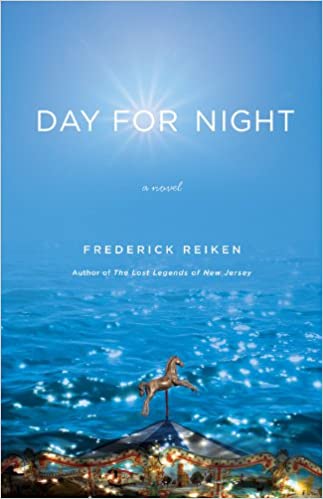
Day for Night, Frederich Reiken
Mesmerizing characters woven in disparate plot threads makes this a very special novel from a decade ago. There is a New Jersey doctor, a Holocaust survivor, on a trip to Florida with her marine biologist boyfriend who is dying of cancer. Their guide for swimming with manatees is a musician, who accompanies his bandmate to visit her comatose brother in Utah who had been flown back from Israel where he had crashed his motorcycle. There is an Israeli accused of killing a Palestinian boy. All these people narrate the story, tying each piece together. This weaving of plot lines is brilliantly handled and each of the characters is drawn memorably. A beautiful book.

The War for Gloria, Atticus Lish
Corey is a teenager growing up in poverty in Boston. His absent father is, apparently, a brilliant physicist at MIT, except he works there as a security guard. His best friend is indeed a genius physicist who attends MIT. These are the main characters, but the beauty of the book is depicting the struggles that Corey endures. His mother, Gloria, develops A.L.S. They have no money, Corey drops out of school to care for her, finds a purpose in mixed-martial arts, quits, looks for a series of odd jobs, is befriended by the father of a girl he has a crush on. Each character is flawed, but we see the unfairness of Corey’s life as he battles an indifferent and hostile world. This is a heart-wrenching story, beautifully written.
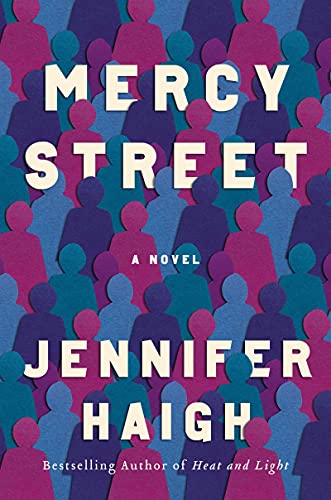
Mercy Street, Jennifer Haigh
Jennifer Haigh takes on that most polarizing of topics, abortion, with wit, charm and empathy. Claudia grew up trailer-poor in rural Maine and works at a women’s health clinic in Boston which is subject to daily protests. Claudia’s life, from her childhood poverty to her meaningless relationships, is described simply but with empathy. Her marijuana dealer (it’s not legal yet) is also lost, mostly in a haze of smoke, but a desire to have a relationship with his son, living in Florida, brings him a modicum of clarity. There are two other characters we get to know on the anti-abortion side, one a well-meaning religious man and the other a violent misogynist. Claudia is the center of the novel, but abortion is the frame through which we see how each (and we) has become isolated from relationships with others. No one makes out well here, and that seems right.
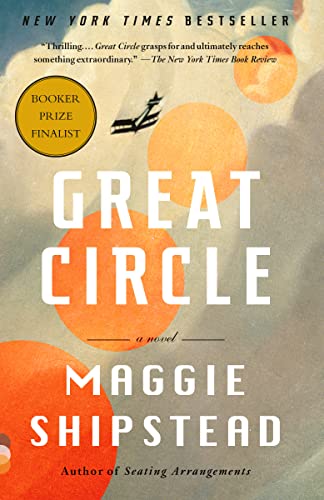
Great Circle, Maggie Shipstead
This is the story of two women, a hundred years apart. The first, Marion, is sent with her brother to live with an uncle in Montana after their father, a ship’s captain, is jailed after his ship sinks. A barnstorming pilot visits their town, and Marion is hooked on flying. A wealthy cattleman pays for her lessons, at first without seeking anything from her. He is also a bootlegger, and Marion wants to repay him by flying liquor in from Canada. A romantic relationship develops, but Marion does not want children, only wants to fly, and the relationship turns ugly. In the present time, Hadley is an actress, type-cast as a hyper-sexed superhero. When she decides to stop dating her on-screen superhero partner, she is abused by the fans and blacklisted by the studios and turns to drugs. She is saved by a neighbor who is making a film about the life of Marion and casts Hadley in the role. The novel moves between these women and times, with their lives filled in with tenderness and tension. This is a big, sweeping, powerful novel.

Afterparties, Anthony Veasna So
This is a series of short stories centered around the lives of the Cambodian community in Stockton, CA. Bored adolescents, meddling families, the weight and guilt of having escaped the nightmare of the Khmer Rouge are played out in the doughnut and auto body shops where they have carved out a new life. So brilliantly captures the oppression and hopes and conflicts of second-generation immigrants. This was published posthumously as So tragically died of an overdose, a young, rare talent lost.
Nonfiction
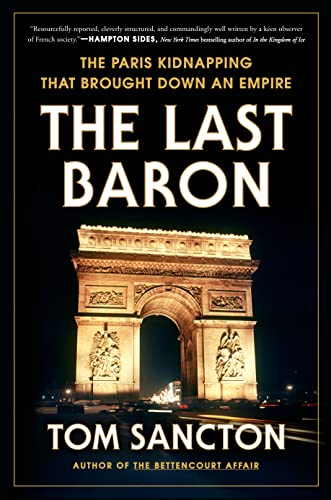
The Last Baron, Tom Sancton
The Empain family was once the richest in France, builders of the Paris Métro and most of the country’s nuclear reactors. In 1978, the grandson of the founder of the family dynasty was kidnapped in Paris and held for ransom for more than sixty days. The author, a journalist, gives us a fast-paced reenactment of that event. The tension between kidnappers and the victim, and the tensions among the family, the police, the company’s directors, are described with a pace and energy that propels us forward.
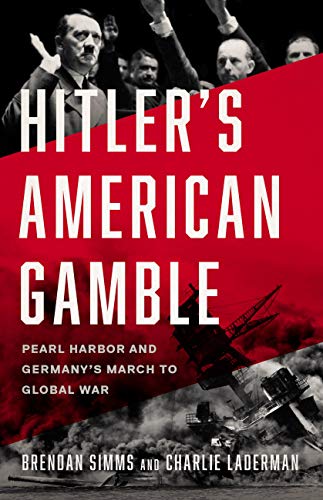
Hitler’s American Gamble, Brendan Simms and Charlie Laderman
This is one of the best examples of how history should be written. The authors avoid the trap of hindsight, where events are explained by working back from the outcome, giving an inevitability to its sequence. Additionally, they are able to explore in depth a very narrow slice of history, the five days after the Japanese attack on Pearl Harbor, and contextualize it in the scope of a world war. Many have pointed to Hitler’s decision to declare war on the United States as a major, if not the major strategic blunder of the war. That may be true, but Hitler’s range of action was constrained, as this book shows, and his decision carried a certain, tragic, logic. History exemplified.
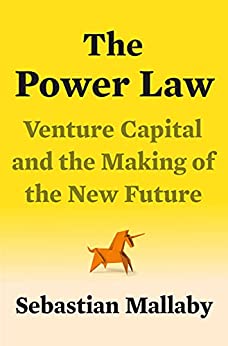
The Power Law, Sebastian Mallaby
How did a small area around Palo Alto give birth to so many of the largest and most consequential companies in history? It’s not the cluster of world-class universities, as Boston, New York, Los Angeles, Chicago, London and others are similarly blessed. Perhaps it was the culture of innovation that encouraged risk-taking, and that may be true too, although there was a lot of innovation that came out of Edison’s lab in New Jersey or from the halls of MIT and Harvard. The key ingredient, according to Mallaby, was the development of the venture capital industry, and he makes a strong case. Here we have a history of venture capital, with the famous and not so familiar names, and the impact they had on developing Silicon Valley into the most important center of technology in history. A fascinating, fast-paced work.
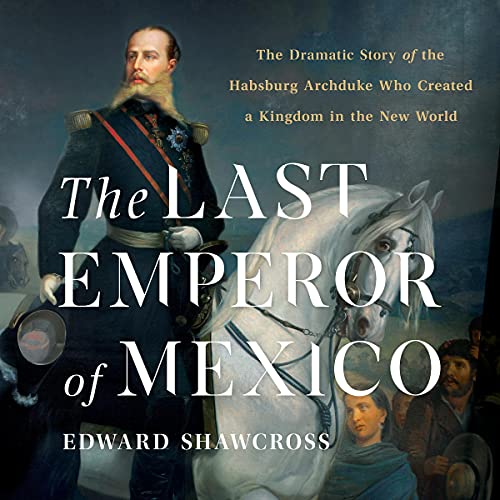
The Last Emperor of Mexico, Edward Shawcross
Cinco de mayo is a fun holiday in Los Angeles, but very few know why it is celebrated. The French emperor, Napoleon III, placed an Austrian archduke, Maximillian, on the throne of Mexico in 1864. I had always thought this was simply another act of European imperialism, and it was, but it was much more complicated too. Mexico was in turmoil, and a European monarch had support from an important constituency on Mexico. European politics played a role in his ascension, as did the American Civil War. Maximillian himself has always been portrayed as naïve, a fool even, but Shawcross elicits some sympathy for him as many of his objectives were very progressive. He lasted less than three years, a small slice of history that is usually passed over quickly in the history books, but a fascinating period in world history.
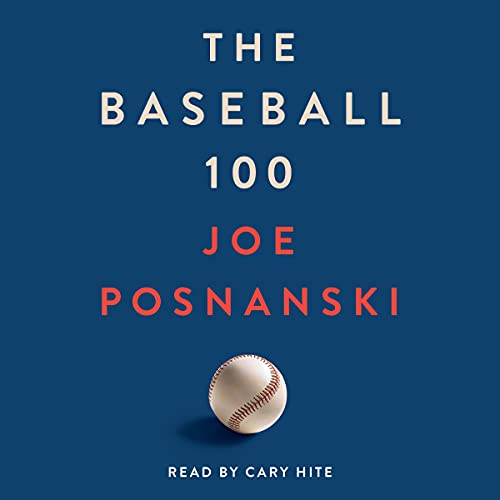
The Baseball 100, Joe Posnanski
This book is only for the baseball fan. But if that is you, this is pure enjoyment. In short chapters, Posnanski explains why each of the 100 players deserves to be on his list, providing context to the statistics. Of particular value is his addition of numerous Negro League players, some well-known, such as Josh Gibson and Cool Papa Bell, but others virtually unheard of, like Oscar Charleston, whom Posnanski argues might have been the greatest player of all time. This book is baseball bliss.
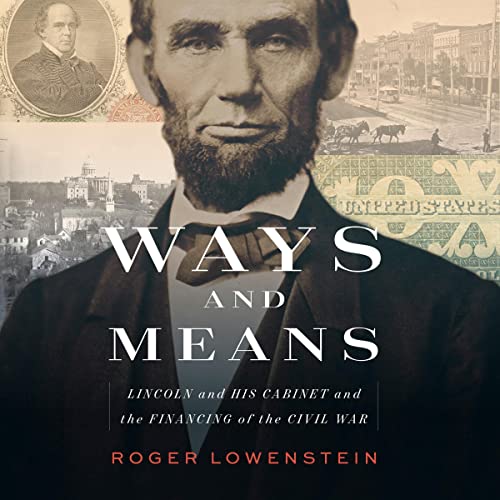
Ways and Means, Roger Lowenstein
Financing wars may be less exciting as fighting them, but it is arguably just as important. The Civil War was fought on such scale, millions of soldiers were involved, that financing such an effort would require a whole new model. Leading the effort for the Union was Salmon Chase, who had no financial experience despite being Treasury Secretary. It was here that a national currency was first introduced, and a new system of banks created, both to help finance the war. In contrast, the Confederacy relied on printing money, which was an inevitable failure. Lowenstein argues that the North’s financial success guaranteed its military victory. Perhaps that’s a stretch, but the superior financing of the war was an important contributor to its outcome. Lowenstein takes what for some may be a dry, technical subject and injects it with vigor and insight. An excellent work of history.
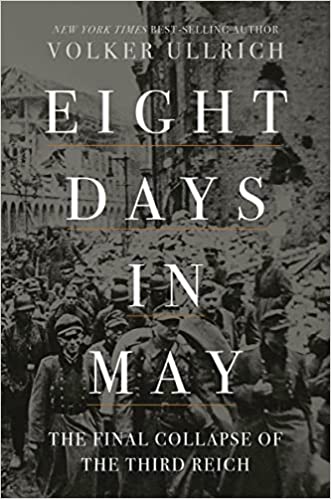
Eight Days in May, Volker Ullrich
Hitler’s suicide on 30 April 1945 did not end the war in Europe. It continued on for eight more days. Ullrich, a German journalist who has written extensively on Hitler, describes the chaos that descended on Germany in the days following Hitler’s death. His successors failed to impose order, but also refused to take responsibility for their actions. Ullrich captures that surreal and horrific moment, transporting the reader into the hell of those last eight days in May.
Print this ArticleRelated Articles
-
![Yogi]() 24 Sep, 2015
24 Sep, 2015Yogi
Baseball, more than any other sport, by far, has drawn its share of colorful characters. I don't know why that is, but ...
-
![Laboring]() 24 Mar, 2016
24 Mar, 2016Laboring
In some respects, this is a golden age for labor. The unemployment rate has dropped to 4.9% from a high of 10% in ...
-
![Mauled]() 11 Sep, 2015
11 Sep, 2015Mauled
Investors in Emerging Markets could be forgiven for feeling as if they've gone 15 rounds with Ronda Rousey (see below). ...
-




